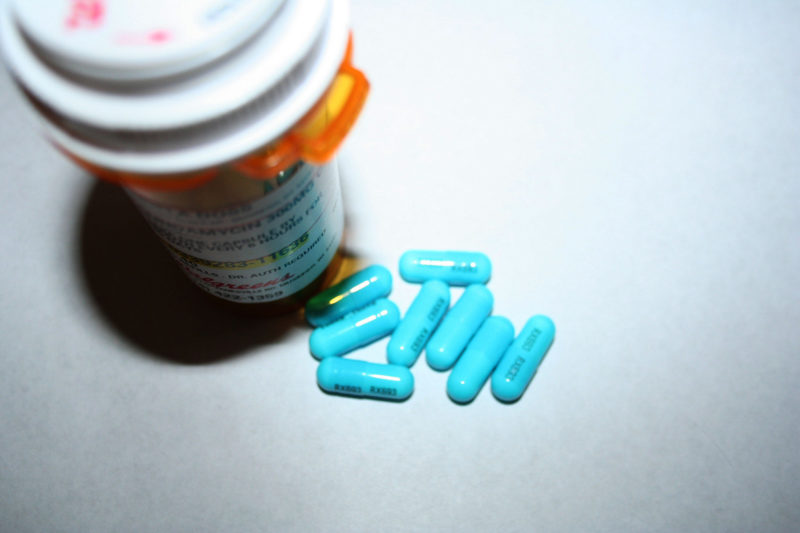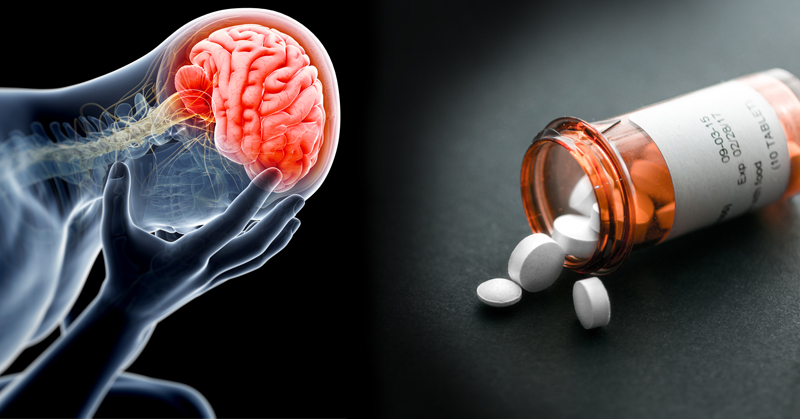The numbers might shock you, but one in six Americans take some kind of psychiatric drug, and most of them are antidepressants. Antidepressants are just prescribed for depression. They’re also being used to treat anxiety, insomnia and PMS, among other ailments. While antidepressants may initially help people who suffer from these health issues, they can also cause other symptoms to surface.
Drug-Induced Nutrient Depletion
Research has shown that pharmaceutical drugs have the ability to deplete your body of critical nutrients in several different ways. They can promote an increased excretion of nutrients, causing impaired digestion, absorption and storage of nutrients. Eventually, this process can result in nutritional deficiencies, which can cause additional symptoms and increase the side effects of the medication.

There’s one major problem when it comes to drug-induced nutrient depletion and antidepressants: nutrient deficiencies can be one of the main causes of mental illness. If someone who is struggling with depression, anxiety or another mental illness due in part to nutrient depletion is prescribed an antidepressant, the medication has the potential to further deplete nutrients from their body, worsening the symptoms.
Nutrient depletion takes time, which means a patient may even develop new symptoms or side effects, months or even years after starting a medication. This makes the connection between the original medication and new symptoms hard to diagnose. New symptoms may lead to a new prescription which further depletes the body’s nutrients and once again, worsens the symptoms. This can create a downhill spiral consisting of multiple medications for many misunderstood or hard to explain symptoms.

Key Nutrients Depleted By Antidepressants
1. Coenzyme Q10 (CoQ10)
Coenzyme Q10 plays a key role in the production of energy. It’s a molecule found in every cell in the body. It’s also an antioxidant that helps protect the body and brain from damage due to free radicals. Research has shown that higher levels of CoQ10 have a “significant antidepressant effect” due to its “well documented antioxidant effect.” Studies show that several different psychiatric medications, including antidepressants and antipsychotics, deplete CoQ10. Low levels can cause brain fog, mental fatigue, memory lapses, depression and irritability. Other symptoms include increased blood pressure, muscle cramps, high blood sugar and shortness of breath.
Foods rich in CoQ10 include peanuts, sesame seeds, soybean oil, oranges, strawberries and broccoli.
2. Magnesium
Magnesium is involved in over 300 biochemical reactions in the body, including neurotransmitter, enzyme and hormonal activity. Low magnesium levels can have a huge negative impact on your mood and brain function. Proper magnesium levels in the body reduce anxiety, depression and irritability. Research has shown that many antidepressants and stimulants deplete magnesium from the body, increasing the chances of developing a deficiency. A magnesium deficiency can cause increased blood pressure, insomnia, migraines, nausea, abnormal heart rhythms and even seizures.
Foods rich in magnesium include almonds, spinach, peanuts, black beans, edamame, avocados, and bananas.
3. B Vitamins
B2, B6, B12 and folate are among the B vitamins that can be depleted by psychiatric medication. B2 plays a key role in energy metabolism. Low levels can lead to low energy, weight gain and thyroid problems. Lower levels of B2 have been found in people with depression, which makes a prescription for psychiatric medication all the more dangerous.
Foods rich in B2 include mushrooms, spinach, sun-dried tomatoes and almonds.
Sources:
Healthy Holistic Living
NBC News
Everyday Health
Life Extension
Optimal Living Dynamics
NCBI
NIH
NCBI


